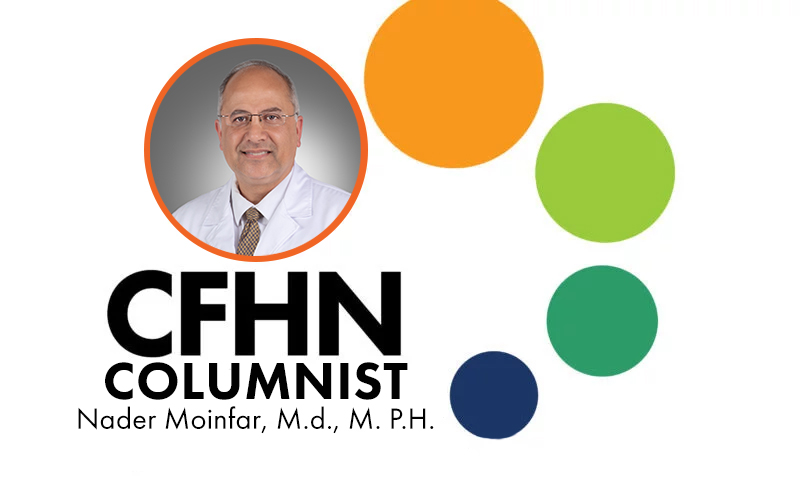by NADER MOINFAR, M.D., M.P.H.
Geographic atrophy (GA) is an advanced form of dry age-related macular degeneration (AMD). In general, AMD is a disease that progresses in stages. Patients with advanced AMD experience vision loss from either excess fluid and blood (wet AMD) or the death of cells (GA).
It is estimated that 1.5 million people in the United States have geographic atrophy and that 20 percent of cases of legal blindness are due to GA.
Biologically, GA causes patches of dead cells to form, causing vision loss. In about 2-3 years, GA can extend to the central vision (fovea), where vision is sharpest and clearest. Studies have shown that almost 70% of people with GA lost the ability to drive in less than two years. Furthermore, 50% of people with GA lost two lines of vision on the eye chart within two years.
Studies have shown that patients with GA have an overactivity of part of their immune system, where the body’s own proteins start attacking the retinal cells. Fortunately, medications are now available to slow what is otherwise an unstoppable loss of vision.
As with wet AMD, the medications for GA are injected in the eye, with promising expectations; in one series, a 35% reduction in the progression of vision loss over one year was observed compared to those not treated. Treatments can be repeated for 1-2 months and/or at the discretion of your fellowship-trained retina specialist.
As with all other treatments for wet AMD, the treatments are routinely done in the office, with anesthetic drops, minimal to no pain, and takes no longer than a minute. Afterward, patients may experience some temporary redness or tingling. It is generally not necessary to dilate the eyes on each treatment.
If you or a loved one suffers from AMD or GA, our doctors are here to help. Call us to schedule a contact lens exam at 800-282-3937 or visit us online at EYESFL.COM.
Bio: Dr. Nader Moinfar is a board-certified ophthalmologist who sees patients at the Sebring and Winter Haven locations for Eye Specialists of Mid-Florida. He specializes in retina eye care and treatments and is accepting new patients.
This column is sponsored by Eye Specialists of Mid-Florida, and the opinions expressed herein may not reflect those of CFHN or of its advertisers.
